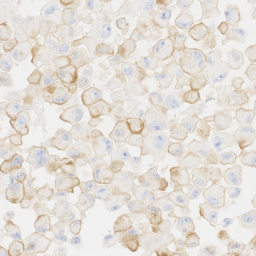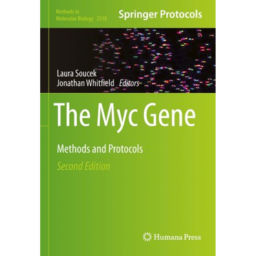
High-throughput RNA sequencing studies have led to the identification of several long noncoding RNAs (lncRNAs), but without apparent protein-coding roles. Mounting evidence reported in the literature is now exposing several functional peptides encoded by RNA regions, previously considered as non-coding, as key regulators of different biological processes.
Published open access in Frontiers in Cell and Developmental Biology, results from a study (1) first authored by Elena Senís, a former Postdoctoral Fellow of VHIO’s Cellular Plasticity and Cancer directed by María Abad, have for the first time shown that a novel 48-amino acid IncRNA-encoded microprotein, pTUNAR, acts as a regulator of neural differentiation of mouse embryonic stem cells (mESCs) in vitro and in vivo, and that its overexpression inhibits neurite formation in different models of neuritogenesis.
Present findings reveal that pTUNAR localizes at the subcellular level in the endoplasmic reticulum (ER) membrane, cross-talks with SERCA2 –an enzyme belonging to the ATPase family that facilitates the two-way traffic of calcium ions inside cells in response to cell signals – and modulates calcium exchange between the ER and the cytosol.
Shown in different models of neural differentiation, the researchers report that pTUNAR overexpression increases the calcium stored in ER, which is implicated in important functions in the synthesis, folding, modification and transport of proteins, and accelerates calcium clearance from the cytoplasm. This points to pTUNAR’s role as a modulator of intracellular calcium dynamics – likely through its interaction with SERCA2.
“While previous studies reported elsewhere have described other families of SERCA-inhibiting microproteins and their respective functions, no microprotein has to date been evidenced to regulate calcium dynamics in the nervous system,” said Elena Senís, lead author of this study.
She continued, “We have now observed that pTUNAR overexpression impairs neurite formation in different models of neuritogenesis. This could be explained by an increase in calcium reuptake triggered by pTUNAR which induces a decrease in cytoplasmic calcium levels, impairing in turn, neurite formation.”
In the authors’ discussion, the investigators draw on other previously reported findings (3) that have shown TUNAR IncRNA as downregulated in glioblastoma multiforme patients’ samples, where loss of calcium homeostasis has been suggested as one of the molecular mechanisms implicated in tumor growth, resistance to therapy, and metastatic cell spread.
“It might therefore be possible that the down regulation of pTUNAR could contribute to the dysregulation of calcium dynamics in these tumors. Further, pTUNAR could act as a promoter of calcium clearance from the cytoplasm via other mechanisms,” added María Abad, Principal Investigator of VHIO’s Cellular Plasticity & Cancer Group, and corresponding author of this study.
“While our research illuminates the importance of the microproteome as a largely untapped source of previously undescribed regulators of neural differentiation, further studies are warranted to generate deeper insights into pTUNAR as a modulator of calcium dynamics,” concluded María Abad.
Research at VHIO’s Cellular Plasticity and Cancer Group, directed by María Abad, is supported by the ”la Caixa” Foundation (HR18-00256), Spanish Association Against Cancer – Asociación Española Contra el Cancer (AECC), Cellex Foundation, Mutua Madrileña Foundation, and by grants from the Spanish Ministry of Science and Innovation (SAF2015-69413-R; RTI2018-102046-B-I00).
This project, led by Elena Senís, was supported by a Postdoctoral Fellowship which she received from the Spanish Association Against Cancer (AECC).
###
References:
- Hui K, Fei GH, Saab BJ, Su J, Roder JC, Feng ZP. Neuronal calcium sensor-1 modulation of optimal calcium level for neurite outgrowth. Development. 2007 Dec;134(24):4479-89. doi: 10.1242/dev.008979.
- Reon BJ, Anaya J, Zhang Y, Mandell J, Purow B, Abounader R, Dutta A. Expression of lncRNAs in Low-Grade Gliomas and Glioblastoma Multiforme: An In Silico Analysis. PLoS Med. 2016 Dec 6;13(12):e1002192. doi: 10.1371/journal.pmed.1002192. PMID: 27923049; PMCID: PMC5140055.














